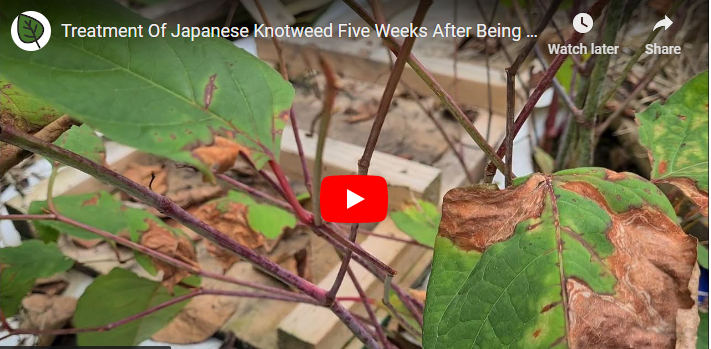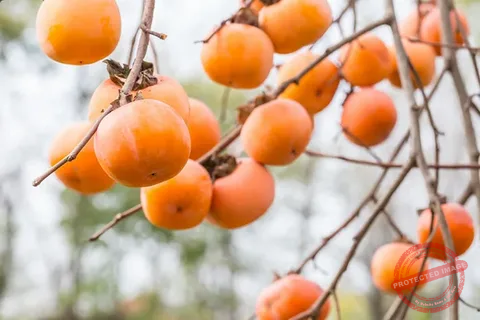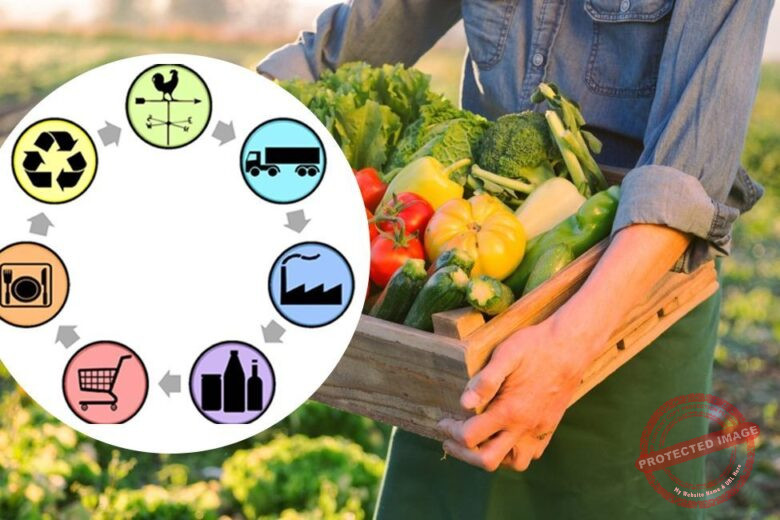Are you looking to optimize the growth and yield of your beans? Finding the right fertilizer is crucial for providing the essential nutrients your plants need.
Some of the best fertilizers for beans include Compost, Fish Emulsion, Bone Meal, Seaweed Extract, and Blood Meal.
In this article, we will explore the 15 best fertilizers for beans, both organic and inorganic, to help you make an informed decision. Whether you prefer organic options or want to explore synthetic alternatives, we’ve got you covered!
15 Best Fertilizers for Beans: Organic & Inorganic
Organic Fertilizers
Organic fertilizers are derived from natural sources and offer a sustainable approach to nourishing your beans. Here are some top choices:
Read Also: The Ultimate Guide to Maize Fertilizer Schedule: Boost Your Crop’s Growth
1. Compost
Compost is a fantastic organic fertilizer for beans. It improves soil structure, enhances nutrient content, and promotes beneficial microbial activity. Incorporating compost into your garden beds before planting will provide a slow-release of nutrients throughout the growing season.
2. Manure
Well-aged animal manure, such as cow or chicken manure, can be an excellent organic fertilizer for beans. It enriches the soil with essential nutrients, including nitrogen, phosphorus, and potassium. Remember to apply manure at least several weeks before planting to avoid any potential issues with pathogens.
Read Also: 15 Best Fertilizers for Watermelon: Organic & Inorganic
3. Fish Emulsion
Fish emulsion is a liquid fertilizer made from fish waste. It is rich in nutrients like nitrogen and trace minerals, making it an ideal organic choice for promoting vigorous bean growth. You can apply fish emulsion directly to the soil or use it as a foliar spray.
Read Also: 21 Best Fertilizer for Soybeans Organic & Inorganic: Maximizing Yield and Quality
Read Also: 15 Best Fertilizers for Groundnut [Organic & Inorganic]
4. Blood Meal
Blood meal is a high-nitrogen organic fertilizer that stimulates vegetative growth in beans. It is derived from dried animal blood and is particularly useful for plants that require an extra boost of nitrogen. Incorporate blood meal into the soil before planting or as a side-dressing during the growing season.
Read Also: 12 Liquid Fertilizers for Maize: Boost Your Crop’s Growth!
5. Bone Meal
Bone meal is another organic fertilizer option rich in phosphorus, which aids in root development and flower production. Beans benefit from phosphorus, especially during the flowering and fruiting stages. Work bone meal into the soil before planting to ensure its proper distribution.
Read Also: 15 Best Fertilizers for Tobacco [Organic & Inorganic]
Inorganic Fertilizers
Inorganic fertilizers, also known as synthetic or chemical fertilizers, are manufactured products that provide concentrated nutrients to plants. Here are some top choices:
6. 10-10-10 Fertilizer
The 10-10-10 fertilizer is a balanced inorganic fertilizer with equal parts of nitrogen (N), phosphorus (P), and potassium (K). It offers a general nutrient boost to your beans and is particularly useful when the nutrient content in the soil is unknown. Follow the package instructions for proper application rates.
Read Also: Fertilizer Schedule for Tomatoes: Maximizing Your Tomato Harvest
7. Ammonium Nitrate
Ammonium nitrate is a nitrogen-rich inorganic fertilizer that stimulates rapid growth in beans. It provides a quick nitrogen release, promoting lush foliage development. However, it’s essential to use ammonium nitrate carefully and follow the recommended application rates, as excessive use can lead to environmental issues.
Read Also: 15 Best Fertilizers for Groundnut [Organic & Inorganic]
8. Superphosphate
Superphosphate is an inorganic fertilizer containing high levels of phosphorus. It promotes root growth and helps beans establish strong root systems. Apply superphosphate before planting or during early growth stages to ensure optimal phosphorus availability.
Read Also: Fertilizer Schedule for Lawns: A Comprehensive Guide to Achieving a Lush, Green Yard
9. Potassium Chloride
Potassium chloride, also known as muriate of potash, is an inorganic fertilizer rich in potassium. It enhances overall plant vigor and improves disease resistance in beans. Incorporate potassium chloride into the soil before planting or as a side-dressing during the growing season.
Read Also: Fertilizer Schedule for Sugarcane: Maximizing Yield with Proper Nutrient Management
10. Urea
Urea is a widely used inorganic fertilizer that provides a concentrated source of nitrogen. It is easily absorbed by plants and promotes rapid growth and lush foliage. When using urea for beans, it’s important to follow the recommended application rates and avoid over-application, as excessive nitrogen can lead to leaf burn.
Read Also: Fertilizer Schedule for Apple Trees: Optimal Nutrition for Bountiful Harvests
11. Triple Superphosphate
Triple superphosphate is a highly concentrated phosphorus fertilizer. It is ideal for beans during the initial growth stages when phosphorus is crucial for root development. Incorporate triple superphosphate into the soil before planting or mix it with compost for a balanced nutrient supply.
Read Also: 15 Best Fertilizers for Okra Farms [Organic & Inorganic]
12. Ammonium Sulfate
Ammonium sulfate is a nitrogen and sulfur-rich inorganic fertilizer. It provides both essential nutrients to beans and helps maintain optimal pH levels in the soil. This fertilizer is particularly beneficial for soils that are deficient in sulfur.
Read Also: 15 Best Fertilizer for Sweet Potatoes Farm [Organic & Inorganic]
13. Calcium Nitrate
Calcium nitrate is an inorganic fertilizer that supplies both calcium and nitrogen to plants. It promotes healthy cell growth, strengthens cell walls, and reduces the risk of calcium-related disorders in beans. Calcium nitrate is especially useful in areas where calcium deficiencies are common.
Read Also: 15 Best Fertilizers for Onions Farm [Organic & Inorganic]
14. Slow-Release Fertilizers
Slow-release fertilizers, such as coated granules or pellets, provide a steady and controlled release of nutrients over an extended period. These fertilizers ensure a consistent supply of nutrients to beans, reducing the risk of nutrient leaching and promoting long-term plant health.
Read Also: 15 Best Fertilizer for Cocoa Farm [Organic & Inorganic]
15. Liquid Fertilizers
Liquid fertilizers are convenient and easy-to-use options for providing nutrients to beans. They come in various formulations, including balanced options and those tailored to specific nutrient requirements. Liquid fertilizers can be applied directly to the soil or as foliar sprays for quick absorption.
Read Also: 15 Best Fertilizer for Cabbage Organic & Inorganic
Can I use both organic and inorganic fertilizers for my beans?
Yes, you can use a combination of organic and inorganic fertilizers for your beans. This approach allows you to reap the benefits of both types, providing a balanced nutrient supply and promoting optimal growth.
How often should I fertilize my beans?
The frequency of fertilization depends on various factors such as soil quality, previous fertilizer applications, and the specific needs of your beans. Generally, it is recommended to fertilize beans at planting time and then provide additional fertilizer every 4-6 weeks during the growing season.
Can I make my own organic fertilizer for beans?
Absolutely! You can create your own organic fertilizer by composting kitchen scraps, yard waste, or using other organic materials like coffee grounds or seaweed. Homemade compost is an excellent source of nutrients for beans and promotes soil health.
Is it necessary to fertilize beans if I have rich soil?
Even with nutrient-rich soil, beans can benefit from additional fertilization. Fertilizers provide a concentrated supply of nutrients that may not be readily available in the soil. Regular fertilization ensures that beans have access to the essential elements they need for robust growth and high yields.
Can I use fertilizers meant for other vegetables on my beans?
While some fertilizers may work for a variety of vegetables, it’s important to choose fertilizers that specifically meet the nutritional needs of beans. Different plants have varying nutrient requirements, and using fertilizers tailored for beans will ensure they receive the appropriate balance of nutrients.
Are organic fertilizers safer than inorganic fertilizers?
Organic fertilizers are generally considered safer for the environment and human health. They are derived from natural sources and promote soil health and biodiversity. However, when used properly and in accordance with instructions, inorganic fertilizers can also be safe and effective.
Conclusion
In conclusion, choosing the right fertilizer is crucial for maximizing the growth and yield of your beans. Whether you prefer organic options or opt for synthetic fertilizers, there are plenty of choices available to suit your preferences and gardening practices.
Among the organic fertilizers, compost, manure, fish emulsion, blood meal, and bone meal are excellent choices that provide a range of essential nutrients for your beans. These organic options improve soil health and promote sustainable gardening practices.
For those who prefer inorganic fertilizers, options like the 10-10-10 fertilizer, ammonium nitrate, superphosphate, potassium chloride, urea, and others offer concentrated nutrient sources that can enhance bean growth and productivity.
It’s important to follow the recommended application rates to avoid over-fertilization and potential negative effects on the environment.
Remember to consider factors such as nutrient requirements, soil quality, and environmental impact when selecting the right fertilizer for your beans. Additionally, regular soil testing can help determine any deficiencies or imbalances and guide your fertilizer choices.
By providing your beans with the necessary nutrients, you can enjoy a bountiful harvest of healthy and delicious beans. Experiment with different fertilizers and find the ones that work best for your gardening needs.



![How To Buy Farmland For Investment [Farmer’s Guide]](https://agrolearner.com/wp-content/uploads/2024/01/Farmland.jpg)